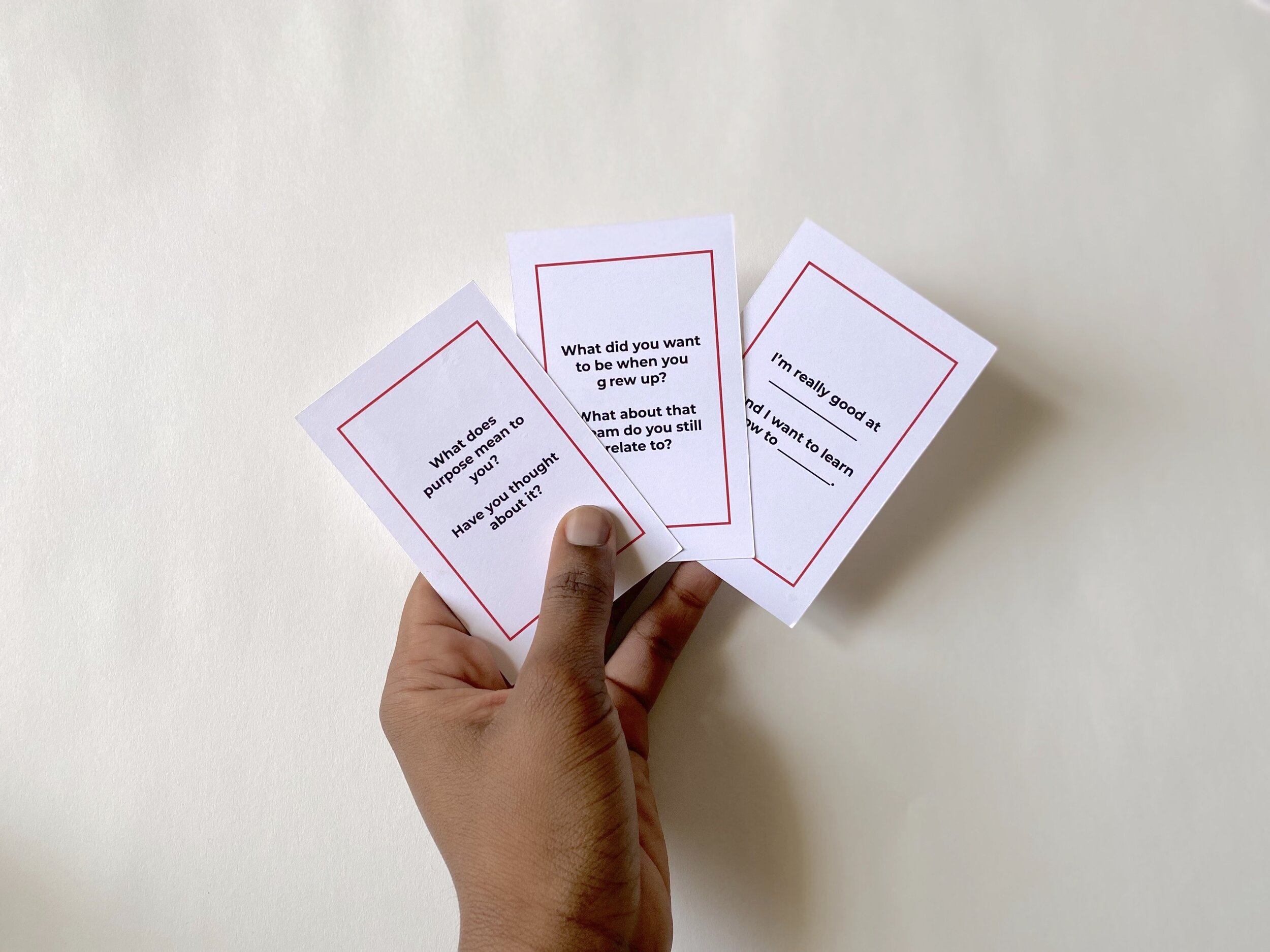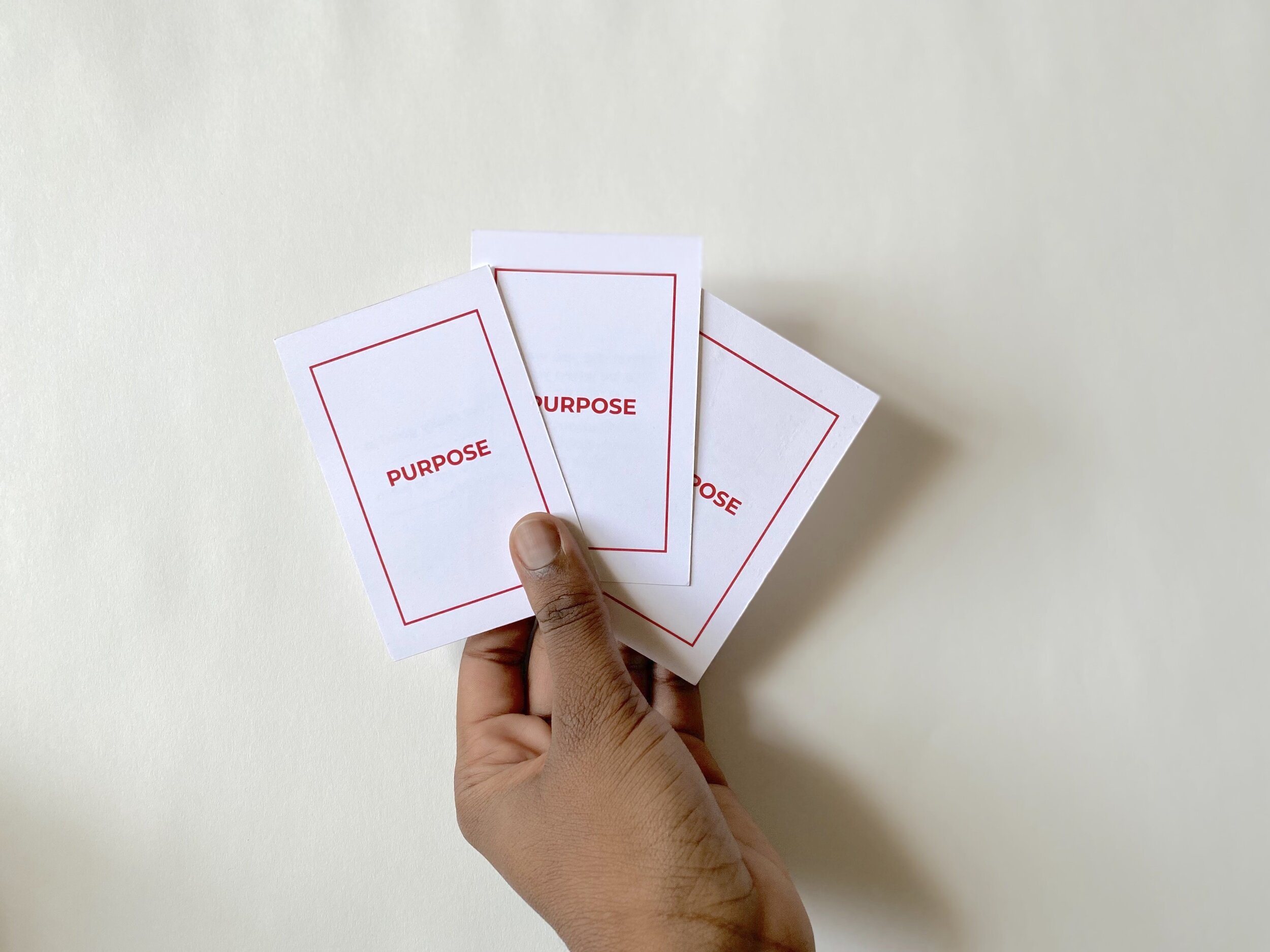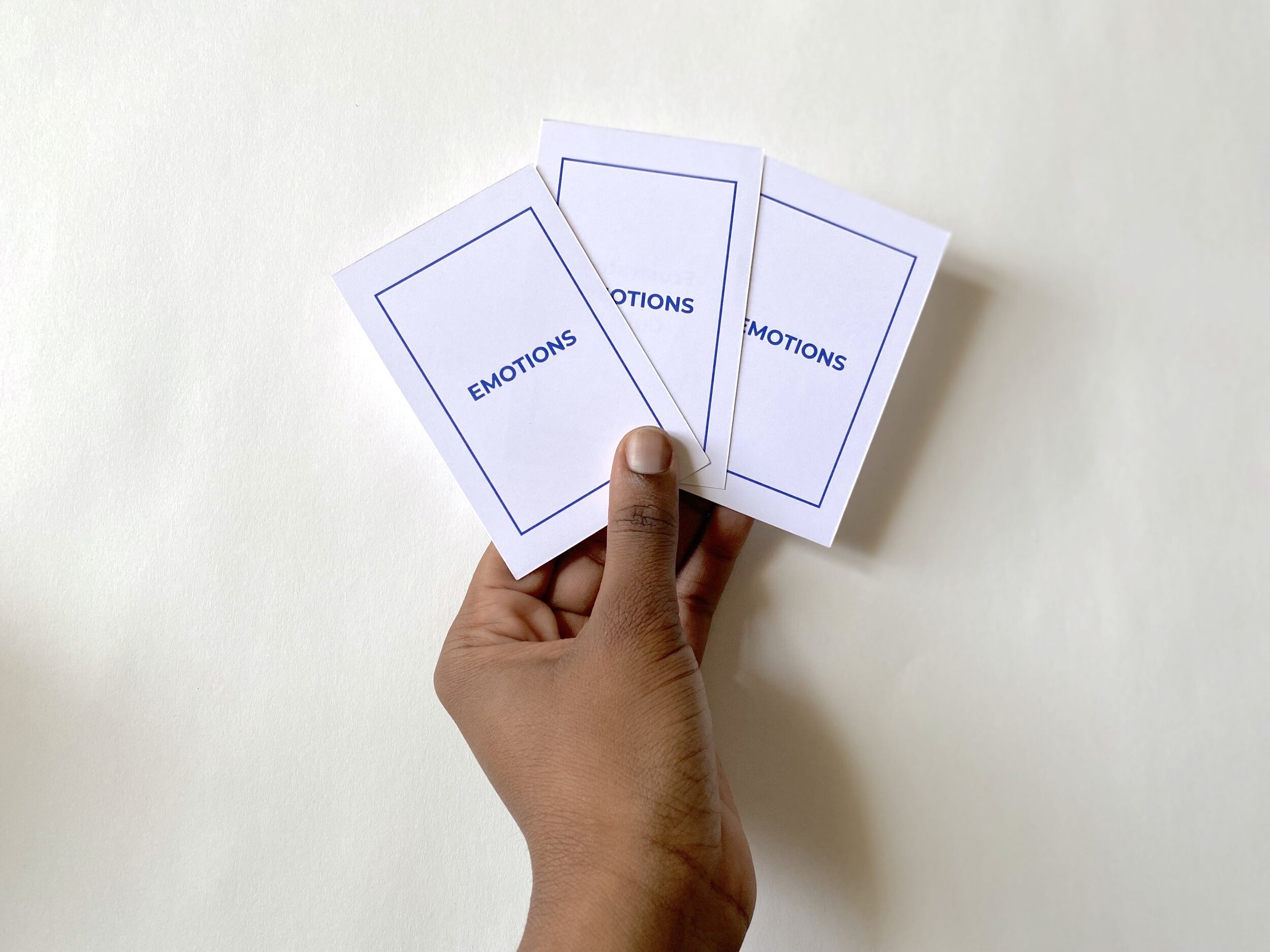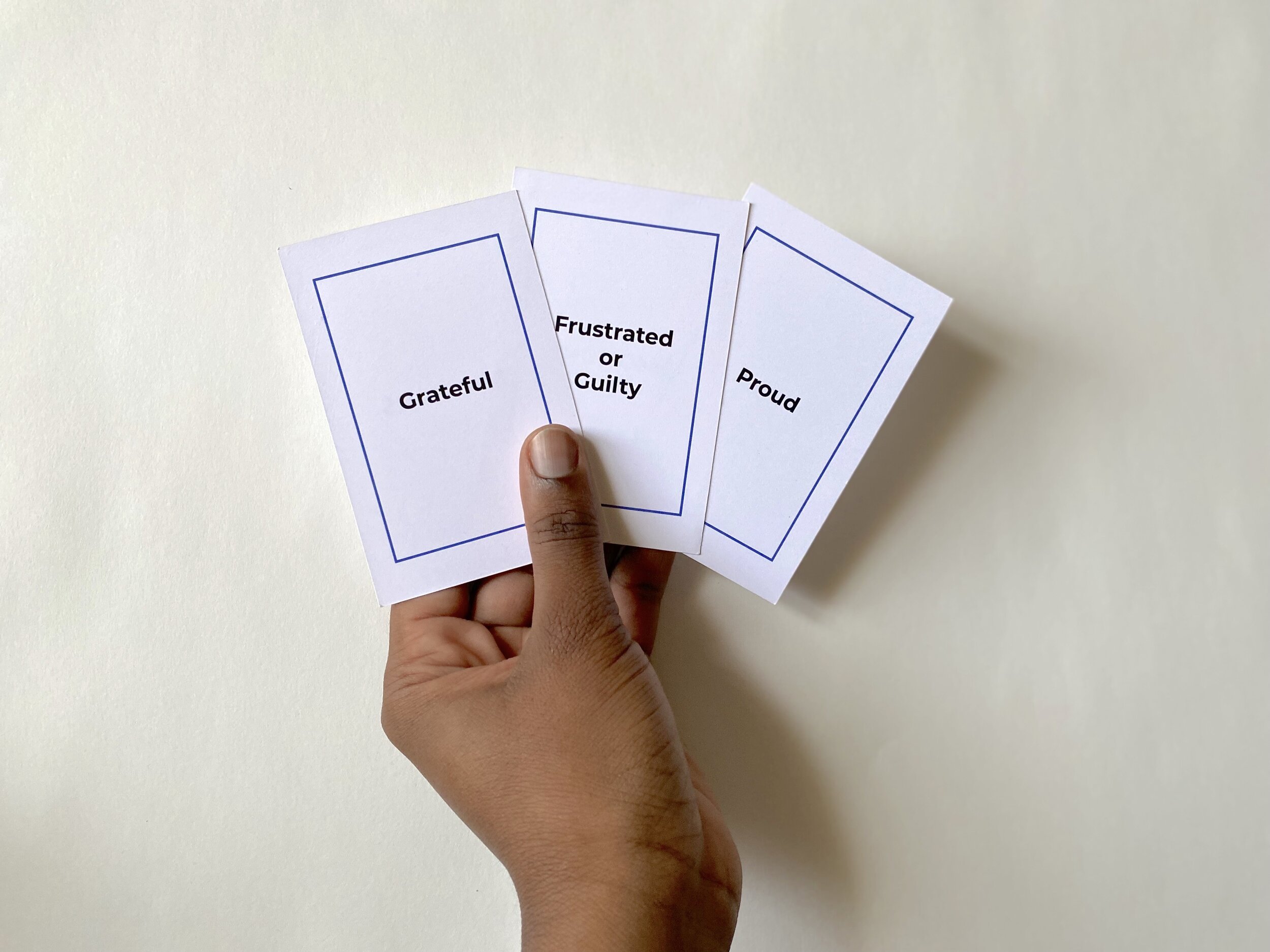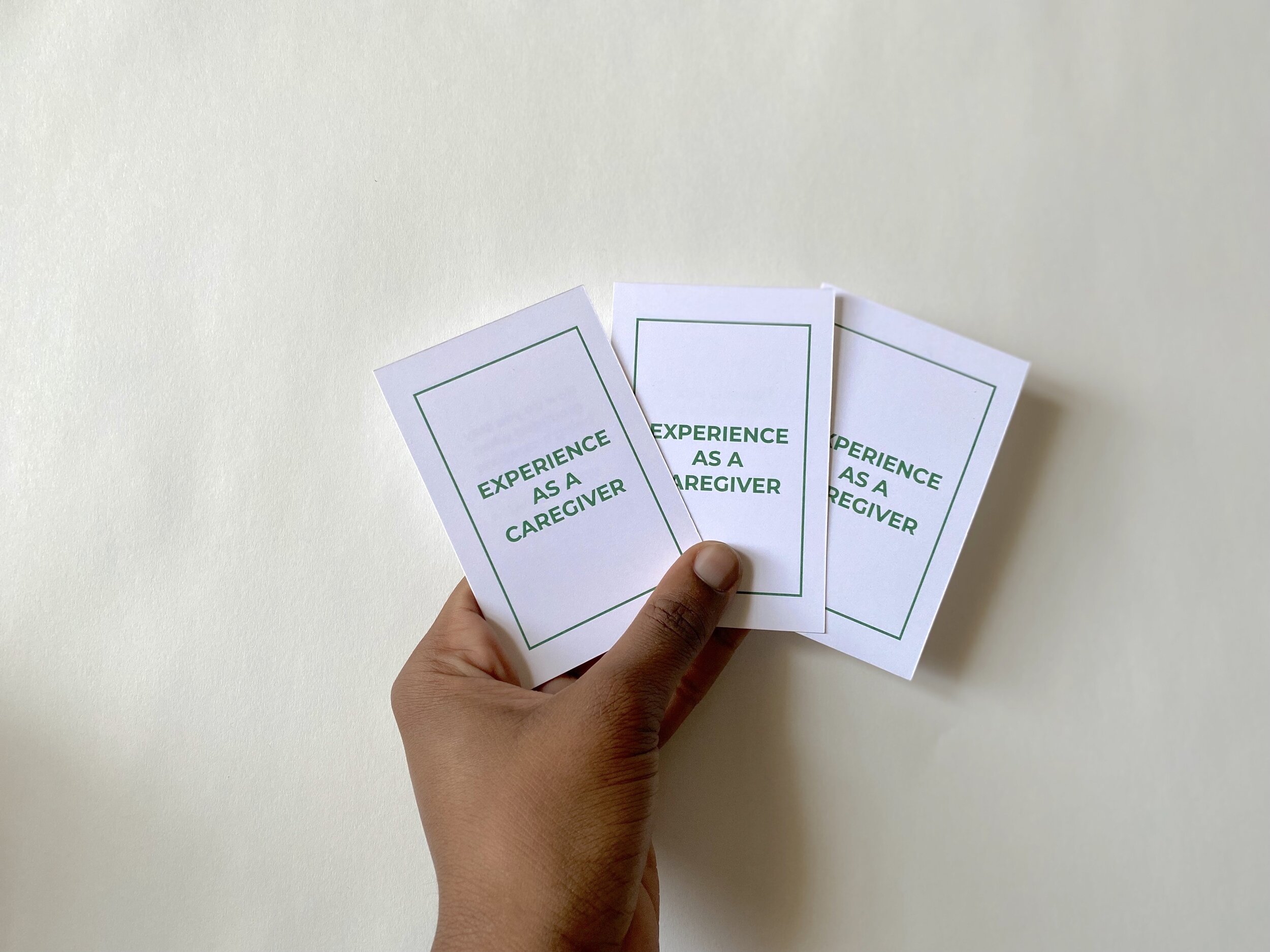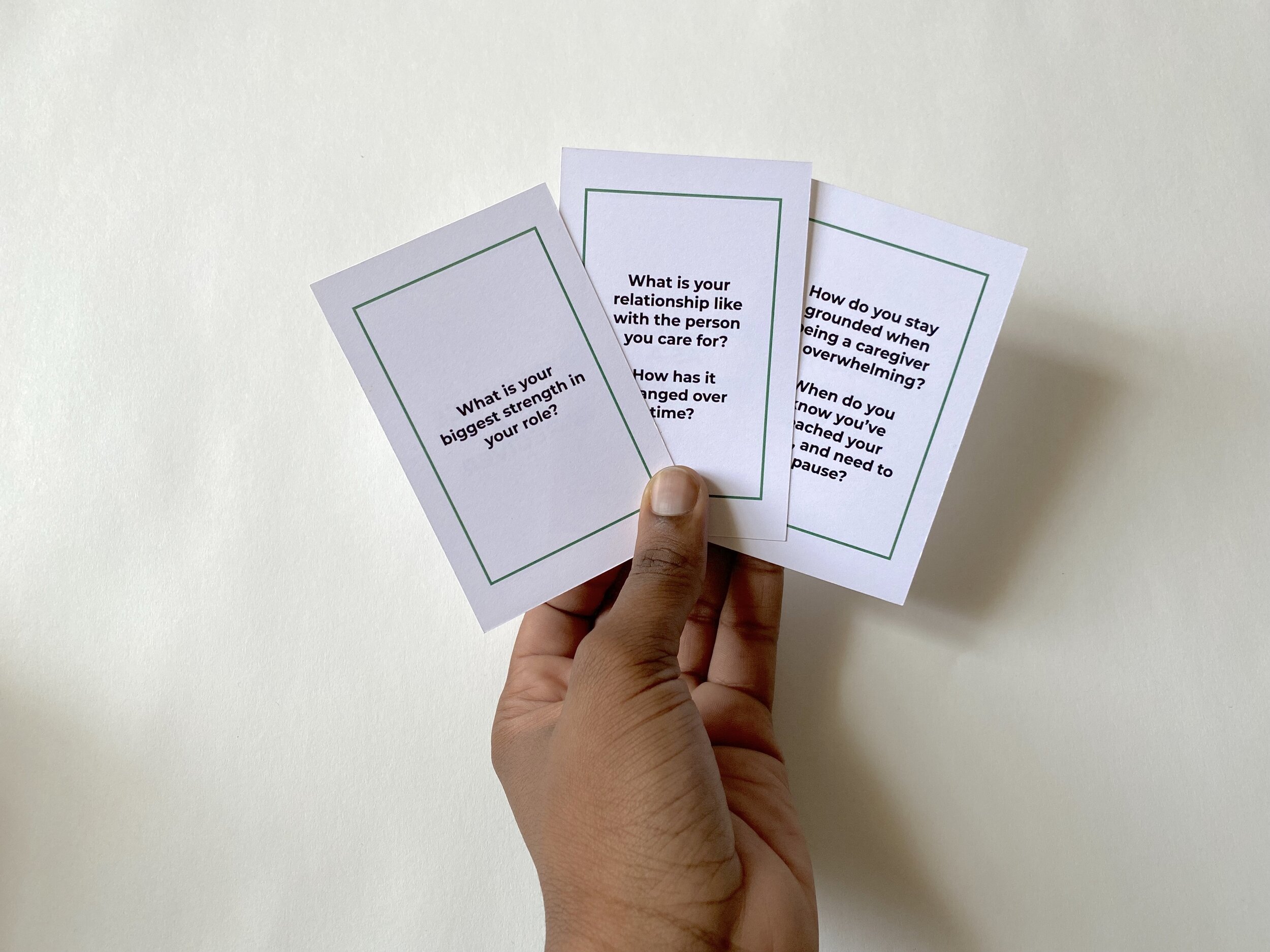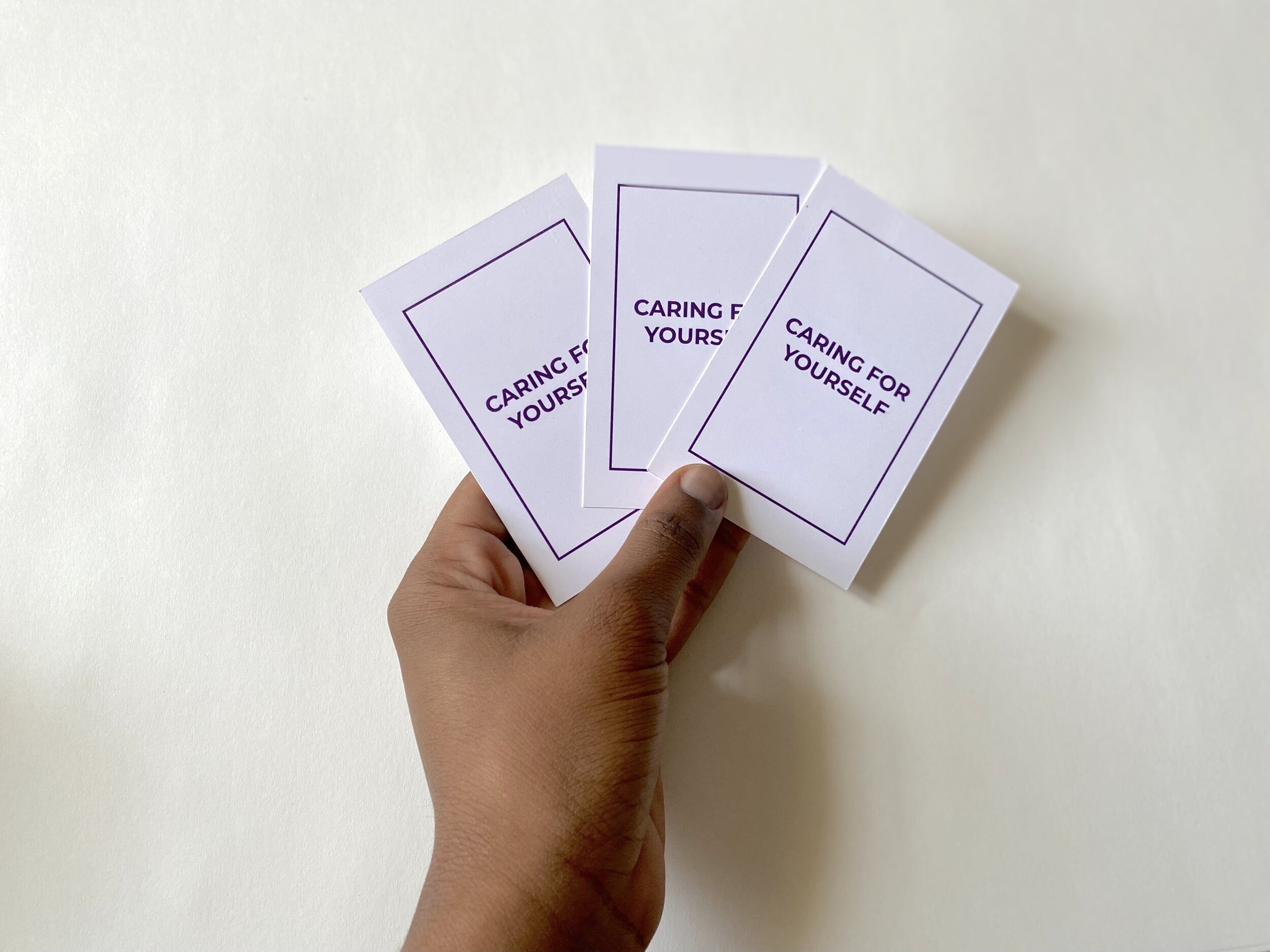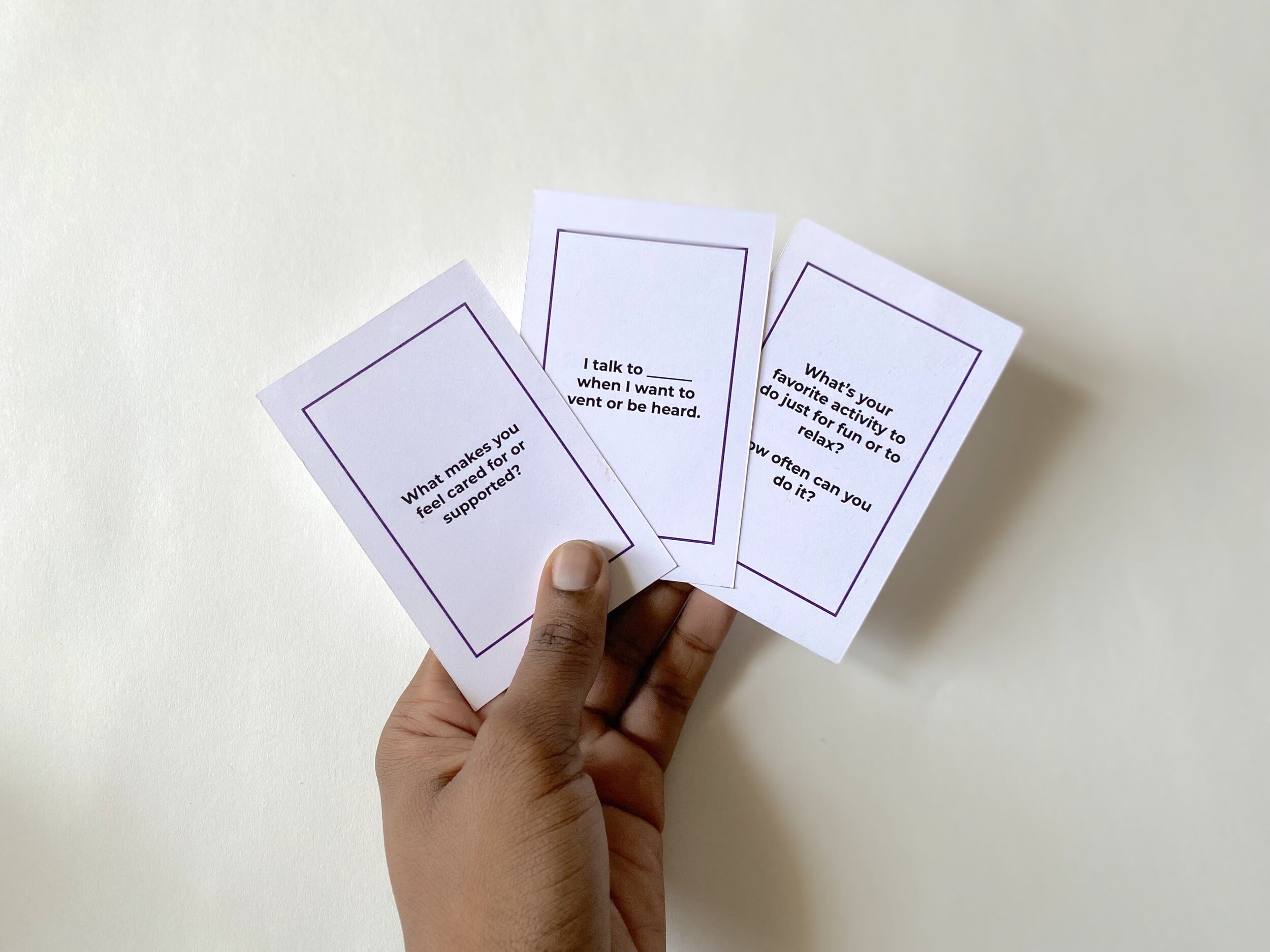founded by Ashley Eberhart, Rising Action Studio is a public health research studio centering folks with lived experience in creative decision-making. By Designing with people from all perspectives of public health, Rising Action Studio designs for a world where we all can equitably navigate our health experience.
Background
Based at the Johns Hopkins School of Nursing PROMOTE Research Center, Martha Abshire is a doctoral nursing researcher focusing on what it means to provide care for family caregivers. Due to the stress and trauma that can come from long-term caregiving, her research was to see if establishing a sense of purpose in one’s life improved physical health outcomes.
Care for Caregivers
In collaboration with the MICA Center for Social Design, she worked with Ashley to address the question of how to go about designing a study that would enable nursing researchers to conduct a conversation about purpose with participants. As Ashley worked on the design of the flow of the research study itself, she brought me on the project as a design research assistant to help with designing the tools researchers would use to conduct it.
Brainstorm & Build
For this to work, we first prepped by creating a shared archive of different means people use to find, embody, or articulate their purpose, ranging from meditation retreats to ikigai charts. We found that activities around understanding purpose fell into 5 categories: Mapping it Out (tools for mental organization); Get “Write” to Your Purpose (activities involving prompts and journaling); Walk Your Path (experiences that foster deep reflection); Structrues to Live By (tools that offer a visual framework); and All Cards on the Table (card activities that foster curiosity through intention)
We held a Brainstorm & Build, where a variety of nursing researchers and PhD candidates came to help us to brainstorm what it means to articulate a sense of purpose, and build prototypes of tools to do so. We then arranged the participants into groups to review the different tools we found in these categories, make notes and observations about each one, and then build a prototype of an activity Martha could use for her research based on their group’s category.
How I Show Up: Design research assistant, co-facilitator
Brainstorm Summaries
After our Brainstorm & Build session, Ashley and I selected the comments and insights that stood out the most. I converted the five brainstorm sheets into design summaries to synthesize the observations & takeaways we had from each group. Included are the inspirational tools they started with, participants brainstorm ideas & feedback, and the prototype they built based on their topic.
We found that because of the modularity of the design, and the simplicity with which people can engage with them, the cards prototype was the best design to go with.
Purpose carD & Testing
We then spent time refining the categories, questions, and prompts for the cards, and divided them into 4 categories: Purpose, Emotions, Experience as a Caregiver, and Caring for Yourself. I then created prototypes of the cards and tested different ways of working with them with different participants.
Continued work with Anushka
As the research project transitioned to the next post-graduate Anushka Jajodia, together we worked on what it would look like for the nursing researchers to actually go about working with the cards; how they would take notes and still be personable, the kinds of notes that could or should be taken, and how did the relationship look with the client for the full length of the study. She continues the work with Martha and the PROMOTE Research Center on different ways to creatively, holistically and ethically approach research in diverse communitites.











